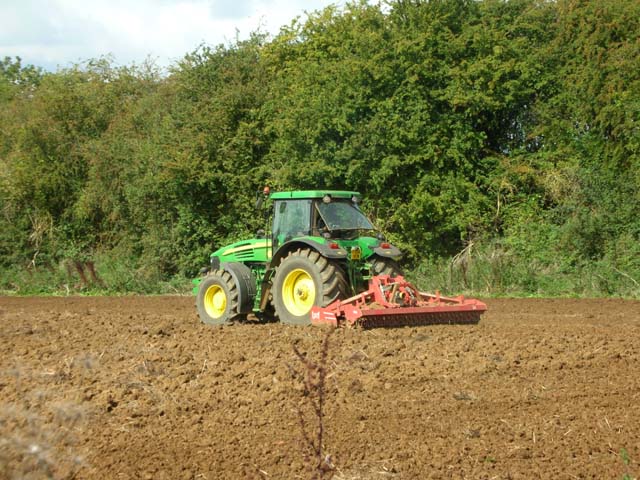The UK government has finally published its long-awaited response to the independent National Food Strategy. Two years in the making, there were high hopes this would be a comprehensive plan of action. But when the document appeared on Monday, these hopes were dashed.
The strategy falls short on a number of fronts. The first: climate. Food is responsible for over a third of the UK’s greenhouse gas emissions, and industrialised agriculture is the leading cause of wildlife decline, antibiotic resistance and pollution. But the strategy did not set out a plan to transform our food system in line with limiting global heating to 1.5C – and providing a liveable planet for current and future generations.
The original National Food Strategy, led by restaurateur Henry Dimbleby and published in July 2021, recommended we reduce our consumption of meat by 30 percent over ten years, while producing and eating more fruit, vegetables and pulses. The Climate Change Committee and the Eating Better Alliance have also recommended an urgent reduction in industrially produced meat, dairy, eggs and fish in our diets.
However, the government’s response has largely ignored this scientific advice by failing to propose the specific policies needed to make sustainable diets easy and affordable.
As part of the strategy, the Department for Environment, Food and Rural Affairs (Defra) has launched a consultation on the Government Buying Standards – a set of minimum health, animal welfare and sustainability requirements for food served in some public institutions. Currently the buying standards stipulate the purchase of higher-welfare eggs (“enriched” cage eggs) and UK-sourced meat, for example.
The consultation proposes extending these standards across the whole public sector, and to introduce an “ambition” that half of food expenditure should be on food which is produced locally or to “higher environmental production standards”.
Unfortunately these proposed standards fail to join the dots between diets and the climate and nature emergency. For instance, they don’t require that public sector meals should reflect a climate-friendly diet, i.e. more low-carbon vegetables and pulses and only small amounts of organic or free range meat and dairy products.
Even public institutions such as hospitals – which are supposed to follow the Government Buying Standards – are failing to meet them. A 2017 Sustain report found that within London, half of hospitals are failing to meet those basic food standards, and nearly two thirds are failing to cook fresh food for their patients.
The government has direct and influential tools to shape the food system.
Schools, hospitals, prisons and defence could be required by law to deliver sustainable meals, and support UK farmers who farm to higher welfare and environmental standards. But to do so it would need new legislation to ensure caterers are required to meet their standards.
‘Immediate Action Needed’
The strategy also commits to a new land use framework in 2023. which it claims will allow the UK to meet its net zero and biodiversity targets, and help farmers adapt to a changing climate. This is positive, but there is too little detail to assess whether it can drive change at the scale and pace that is needed.
Another proposal in the strategy is for the food and drink industry to report publicly on a set of health metrics, and to explore doing so for “sustainability and animal welfare”. Such a move towards transparency would be very positive, but public reporting won’t in itself ensure change.
This strategy acknowledges that government intervention is necessary, which offers a glimmer of hope. It also proposes a programme of trials to develop “interventions to encourage and enable healthier and more sustainable diets”. Such trials will help, but we already have a wealth of research about how to make good food the norm, and a willingness among the public to eat well. A programme of immediate action is needed, to grow more sustainable food and make it more accessible and affordable.
The Dimbleby review recommended that the government guarantee the budget for agricultural payments until at least 2029, to help farmers transition to more sustainable land use and agroecological farm systems. However, this was absent from the government food strategy. Contradictory briefing by different government departments ahead of the strategy’s release has also left farmers unclear about what support they will receive.
‘Concerning’
The strategy’s proposals around fish are also concerning. Seafood production is described as a “potential growth opportunity” that could be a source of a “potentially lower-carbon and healthy source of protein”.
However, it is unclear where this growth is expected to come from. An increase in salmon farming – Scotland’s biggest food export – rings alarm bells. The Scottish government already has plans to significantly expand salmon farming by 2030 – an industry which has led to sea-lice outbreaks, the plummeting of wild salmon populations, and become a significant cause of pollution and animal welfare concerns.
Salmon feed also brings other risks to the environment through the supply chain of its feed. Aquafeed contains soya, oils, and other grains, as well as wild fish that could be eaten directly by coastal communities in fragile, food-insecure places.
When it comes to wild caught fish, there is little opportunity for growth without a plan to rebuild the UK’s fish stocks – some of the most depleted in the world. However, there is a huge potential for growth if the seas were given the chance to recover.
In our 2021 report “Net Worth”, Sustain calculated rebuilding fish stocks to sustainable levels could create 14,000 jobs and £2 billion for the UK economy. Unfortunately, the government’s strategy contains neither proposals nor legislation to make this happen.
The government’s strategy demonstrates a deep lack of ambition, and fails to recommend legislation to underpin any of the proposed measures.
Henry Dimbleby recommended that a comprehensive strategy was needed to recognise the urgency of the problems in our food system, and the interconnected nature of farming, health, climate change and food poverty. This paper categorically fails to deliver.
Ruth Westcott is a climate co-ordinator at Sustain: The Alliance For Better Food and Farming.
Subscribe to our newsletter
Stay up to date with DeSmog news and alerts







